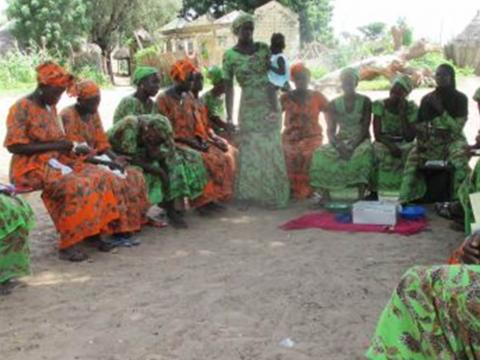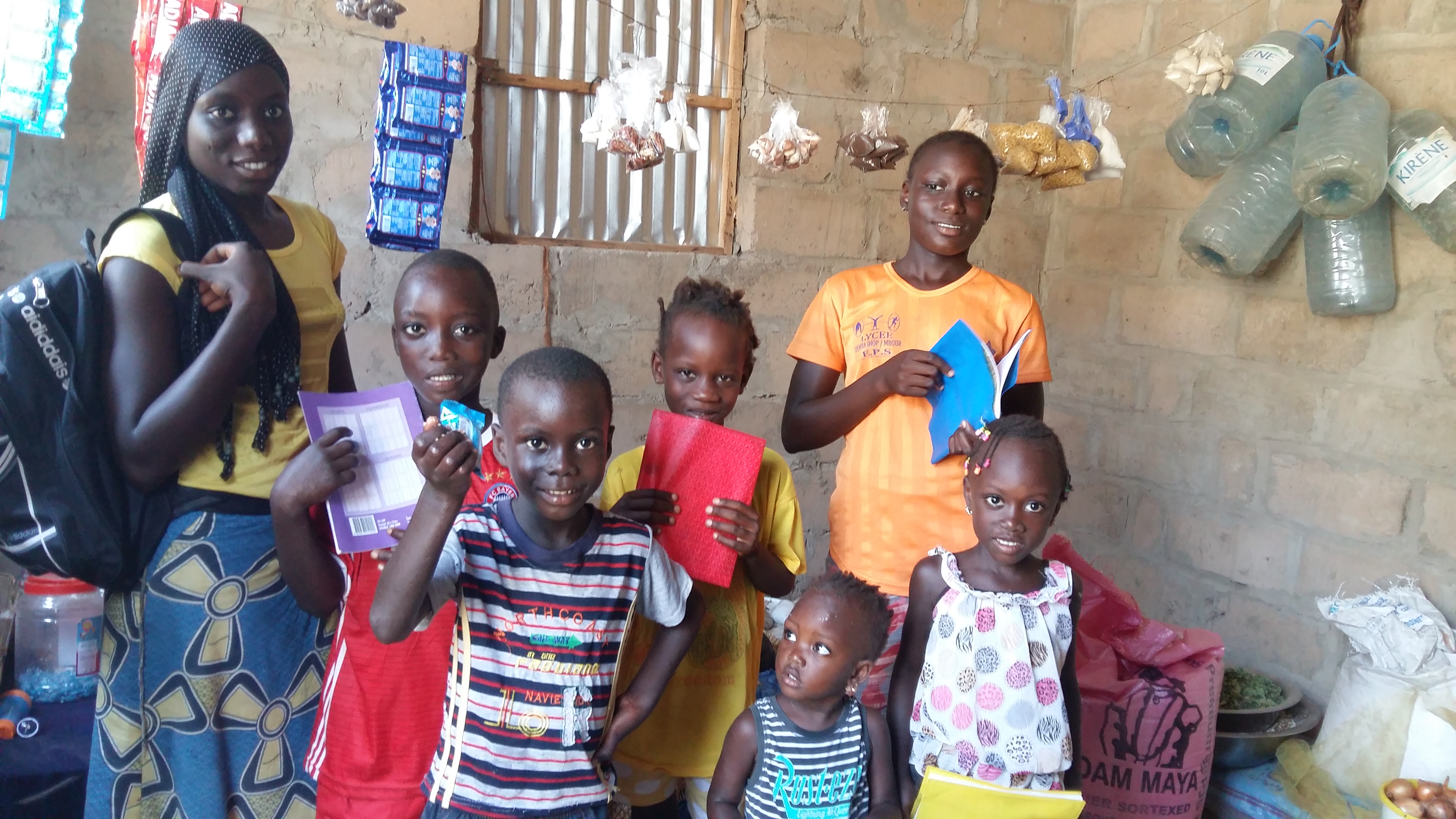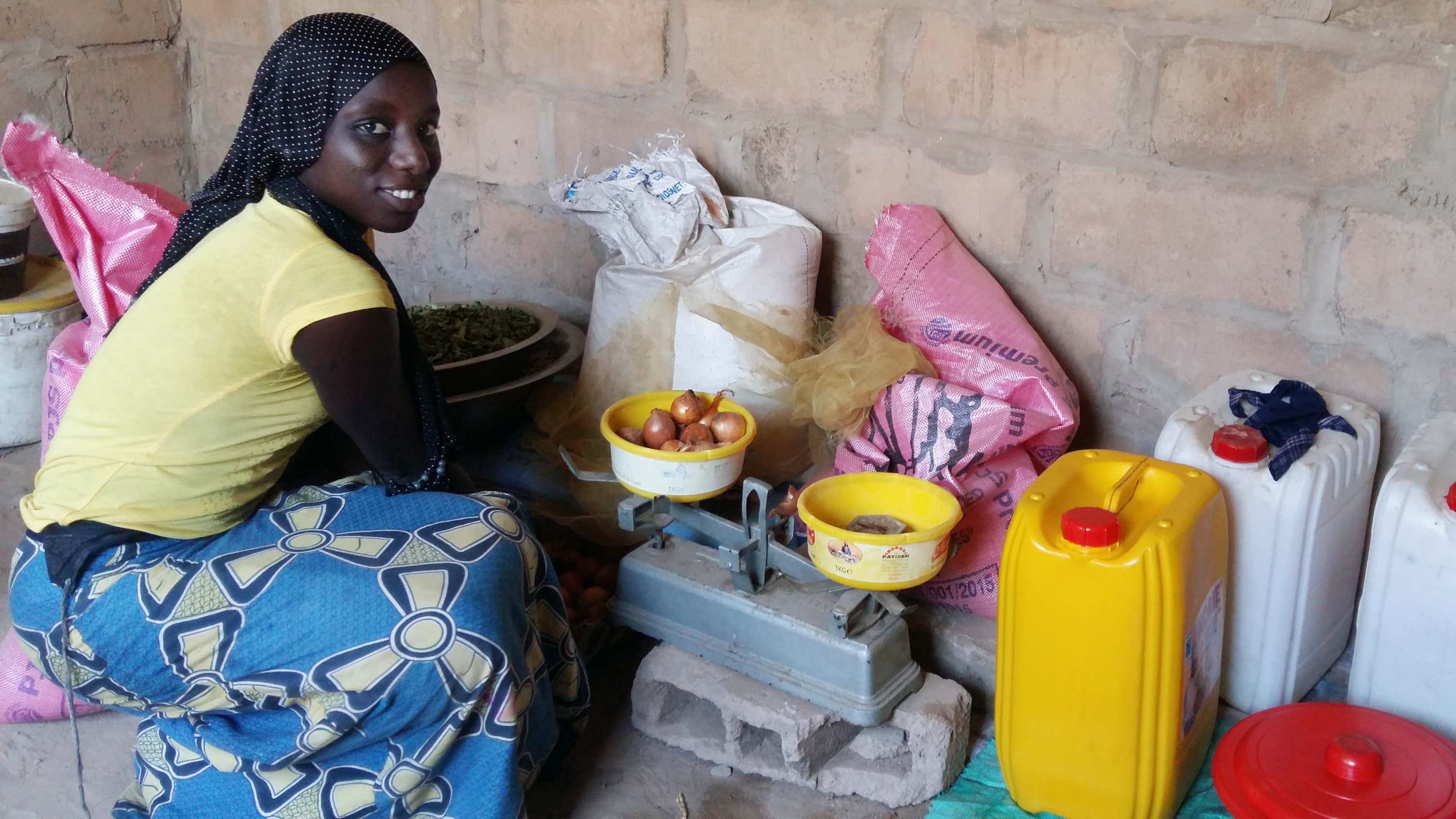Village Loan and Savings Groups: a credit to their communities

Enjoying the cool air underneath the palaver tree in Mbamane main square, a group of women are sitting, deep in earnest but relaxed conversation. They are being addressed by a lady clutching a pouch, her headscarf carefully secured. Her name is Mberry, a trader from Mbamane to whom the villagers go for groceries in between weekly market days. But today it is neither the weekly market nor a social gathering – it is a meeting of the village loan and savings groups (VLSG). Later she will proudly tell us her story.
Mberry, AVEC member in Mbamane in the Diakhao ADP
The members of the group get together every Monday in the public square for their weekly meeting. These weekly fixtures are compulsory for members wishing to take out loans and deposit savings.
Access to credit is still a problem in many of the villages of the Diakhao. According to the LQAS* survey completed in April 2016, the number of households able to secure a loan was estimated at 31%, and the trend is downwards from 34% in 2015 and 38% in 2011. The lack of microfinance institutions in the area only makes matters even worse.
This is why World Vision has stepped in, using its Diakhao economic development programme to offer credit facilities through the establishment of these savings and loans groups. One of this year's achievements has been to set up 25 new village loan and savings groups, a big increase on last year when just four were established. The process has been aided by the recruitment of a field agent and the provision of materials.
Solidarity is the key to success. Together for progress.
A village loan and savings group is a circle of 15-25 people who save together and make small borrowings against these savings. Their activities go through a cycle of about a year, at the end of which the savings accumulated and the interest accrued from loans are shared out in proportion to the amount that individuals have contributed. Beyond the financial aspect, the group dynamic also promotes leadership skills in women and more importantly, solidarity between members. It is also a place where many ideas are shared that can make community life better. The group may decide to rally round a certain income-generating initiative, but individuals are also free to work towards meeting their own needs. This is just the case of Mberry, who has made great changes for herself and her family.
Supporting my family for the first time.
Mberry’s children in their shop, showing off their gear for school
"Before this I had never taken part in a tontine*, I had no source of income of my own and I had no clue about running a business. Through World Vision I got to hear about the village loan and savings groups, and I joined up. The subscriptions for the first cycle were 100 CFA (15 cents) and when the funds were shared out at the end of the cycle, I had amassed 30,000 CFA ($49)!
The first loan I took out was for 20,000 CFA ($34) and I used it to start a little business selling condiments in the local area - out of a bucket. By the end of the 2nd cycle my business was doing well. I had 45,000 ($73) in the kitty which I invested in a table for selling my condiments.
Since then I have upgraded from the table and I opened a shop selling various wares. Thanks to money I have earned I have been able to take care of my family's needs, including supporting my husband to pay for the kids' schooling and school materials. Now I can manage sending seven children to school. And they never go short of equipment or lunch.”
The rise in the number of households able to secure a loan makes it possible for them to develop activities that can generate income, all with the objective of meeting the needs of the family. Importantly, when people are active, have income and can support their families, they are less inclined or obliged to leave home. And as a result, girls and boys can stay in school where they can learn and thrive, as opposed to leaving for the cities to look for work.
Mberry daughter, helping her mother manage the shop
LQAS*: Lot quality assurance sampling
Tontine*: A tontine is a savings group that brings together savers to invest together in goods or assets, the ownership of which exclusively benefits the subscribers. Members of a tontine commit to pay in a predetermined sum at an agreed interval. Each member takes it in turn to be the beneficiary of everyone else's contributions for one cycle. There are two methods for choosing the beneficiary – either lots are drawn before each pay-out, or else lots are drawn once at the beginning of the cycle and the members receive the pay-out in the sequence determined by the lot they have drawn. (Source: Wikipedia)
Photos credits: Anna Daba Ndiaye

